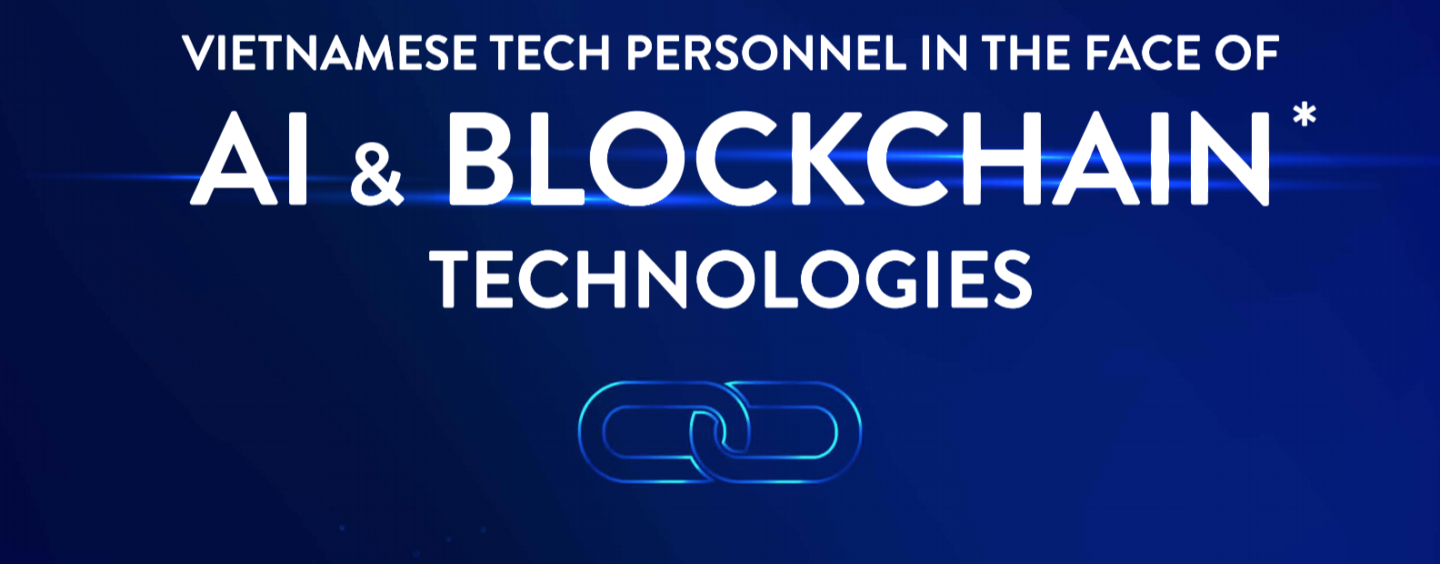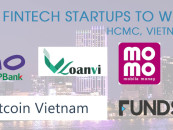
Vietnamese Firms Still Behind International Counterparts in Adopting Blockchain, AI: Survey
by Fintech News Vietnam September 11, 2018Vietnamese firms understand the need to adopt cutting-edge technologies including artificial intelligence (AI) and blockchain, yet only a few of them are actually using them, according to a report by Navigos Group, an online recruitment company and subsidiary of en-japan Inc.
A survey conducted by the firm polled over 1,000 IT professionals about their views of and experience with technologies such as cloud computing, big data, Internet-of-Things, blockchain and AI. The research found that cloud computing, big data, and software for automated conversion, were currently the most used technologies in the list by Vietnamese enterprises, while blockchain and AI were the least adopted.

VIETNAMESE TECH PERSONNEL IN THE FACE OF AI & BLOCKCHAIN TECHNOLOGIES, Navigos Group Vietnam
Nevertheless, 66% of respondents said their companies were interested in blockchain and AI. Among them, 13% said they had already prepared plans to adopt these technologies within the year, and 14% said they would utilize these within the next one to three years.
Almost all respondents believed in the future development of AI and blockchain. 86% of them showed perspective about the potential of new technologies and their understanding about the advantages of AI and blockchain.
In AI, respondents cited the most promising potentials of the technology as the ability to build better solutions (39%), the ability to create “smart machine which help present industry convert into full automation” (24%), and the the ability to create “smart robots which will help humans doing dangerous tasks in the future” (9%).
For blockchain, respondents said they viewed the most promising potentials as improved money transfers (22%), the ability to ensure the quality of products (18%), and improved business processes (13%).
Commenting on the findings, Gaku Echizenya, CEO of Navigos Group, stressed the need for Vietnamese IT firms and specialists to educate themselves on these emerging technologies.
“International companies are assessed to be quickly update new technologies, hence Vietnamese companies should speed up in technological races to write the name of Vietnam on technological maps,” he said.
“Besides, we should build more playgrounds for tech community for exchanging, learning, practicing new technologies. To lessen the danger of tech brain drain, we should also focus on talent retention policy, create good conditions for innovating products and chances to contact with new technologies.”
IT staff named AI, blockchain, data science, machine learning and deep learning, as well as Internet security as the top technologies they intended to learn about. However, they cited the lack of professional training, the lack of opportunity to translate theory into practice, and limited language abilities, as the key obstacles to education.
41% said they were able to read and comprehend documents in English, and only 26% said they were competent in listening, speaking, reading and writing.
Over half of respondents said they were be willing to move abroad if they were offered an opportunity to work for a blockchain or AI startup.
The report comes at a time when demand for IT professionals with expertise in technologies such as AI and blockchain are on the rise around the world. According to Vietnam Investment Review (VIR), IBM was seeking 150 blockchain engineers as of April 18.
Recruitment firm Robert Walters recently noted how they have seen a 50% uptick in the number of jobs in Asia since 2017 related to cryptocurrency or blockchain technology. The firm noted significant demand in countries that include India, Singapore and Malaysia.
Since early 2018, no less than ten workshops related to applying blockchain technology have been held in Vietnam, according to VIR.
Technology is set to change the economical, political and societal landscape in numerous countries, including Vietnam, according to Dr. Nguyen Van Nam, director of the Research Institute for Brand and Competition Strategy.
“The leading force in Vietnam is enterprises and they will have to become digital enterprises, but they must reorganize and the government should have practical policies in support,” he said.




